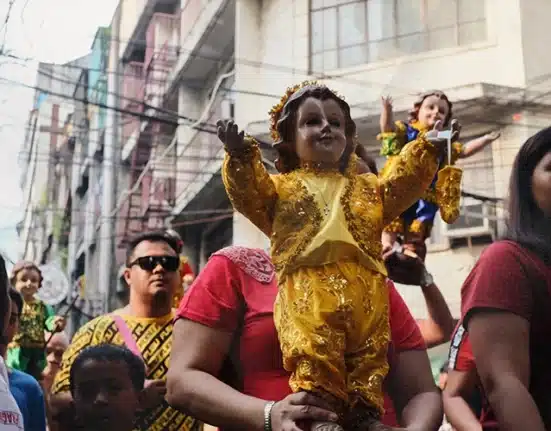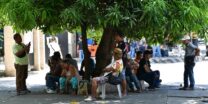BLOOD, guts, and glory. That’s what the Filipino practice of “penitensya” is all about.
The word penitensya comes from the English word “penance,” which is defined as self-punishment for wrongdoing. Why is this done by some people? Perhaps it is because they feel remorse and that they deserve the hardship.
It’s a practice that’s said to have been around since the 17th century when flagellant processions were brought in by Spain to the Philippines. Here, hooded, half-naked men cut and whipped their backs with leather straps or bamboo strips. Others carried large crosses just as Jesus did, and in extreme cases, were nailed onto them after lying down on the scorching hot pavement, all in the name of repentance.
Those that participate in this flagellation – otherwise called “flagelantes,” “penitentes,” “kristos,” or “magdarame,” – do so as a means of punishment, but also because they feel they are comforting Jesus by experiencing what he went through.
There are also those who do it as a form of “panata” to God, in the hopes that if they do so, He will grant their prayers. One flagellant who took part in the act, for example, did so for a better future for his two kids.
It’s usually practiced nowadays during Maundy Thursday and Good Friday.
Despite the dangers of this practice, it has yet to be banned by the government. So far, the Department of Health has only discouraged people from partaking in it, to avoid getting tetanus, wounds, or infections.
The Catholic Church has also spoken up on the matter, saying that the practice was heretical.
It may be difficult to ban it given the thousands of Filipinos who participate in it, as well as the large number of tourists (local and foreign) who come just to see it. For now, it seems as if this manner of “dark tourism” is here to stay, particularly in areas of Central Luzon such as Bulacan, Laguna and Pampanga.
Morals and ethics
I remember back in high school when my religion teacher started discussing this act – how it was the complete opposite of what God wanted for His people.
My teacher explained that Jesus died for our sins because he no longer wanted us to suffer. He ascended to Heaven, opening the gates for us, so that we’d be able to enter God’s kingdom.
That has stuck with me to this very day.
In the Bible, Jesus talked several times about how wrong it was to harm the body. In 1 Corinthians 6:19-20, he said, “Your body is a temple of the Holy Spirit within you, whom you have from God? You are not your own, for you were bought with a price. So glorify God in your body.”
Furthermore, in Psalm 147:3, it said: “He heals the brokenhearted and binds up their wounds.”
We all have our ways of practicing our faith. There are those who go to Mass several times a week, those who pray the Rosary almost daily, and in other cases, those who mar their body, all for the love of God.
I have no right to police people’s belief systems. Often, those who participate in this practice often do so as a form of extreme repentance for things they have done or have certain wishes in their lives that they feel are dire to come true, and I understand where the desire to do this practice comes from.
67-year-old Vic Naelga, who often participated in this practice, said: “What we do is right in the eyes of God.” Even though he is old, he continues to participate.
24-year-old Armand Caballas did so because he felt that he’d grown too far from God when he was younger. He no longer thinks about the pain and simply looks at it as a vow.
“It is heartfelt, and it is for God, so you need to accept what you feel – the baking sun, the wounds,” explained 36-year-old Ariel Tambioco.
For them, it was all worth it, and it was what God would have wanted. But how can one be so sure?
They say that imitation is the highest form of flattery, though I’m not sure that it is applicable in this case.
If the Bible claims that these practices are harmful, and the Catholic Church sees it as heretical, then what more does that say about us who not only participate in it, but encourage it, so much so that thousands from across the globe flock to our country just to see it?
There is something I do admire about those who join in this act, and it’s their devotion – their faith that what they are doing is right. There are those who participate in penitensya for years, and others their whole lives. That’s true love, true dedication.
I’m just not sure if it’s the right way to show it.
At present, there seem to be no cases of people who’ve gotten infected, seriously injured, or have died because of participating in penitensya. But are we going to wait for it to come to that before we ban it completely?
Would it be better to continue watching the literal suffering of our people when Christ has suffered enough for all of us?
I don’t know the answer to these questions. However, I feel that what’s happening right now isn’t what He would have wanted.









